What befell UNP!
By Jaliya WIJEYEKDON
Sri Lanka which has a recorded history of over 2,500 years was under
British rule for 133 years starting from 1815.
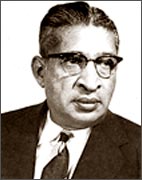
Dudley Senanayake |
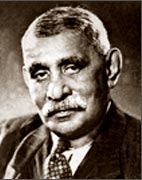
D.S. Senanayake |
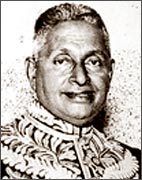
Sir John Kotalawala |
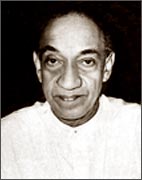
J.R. Jayewardene |
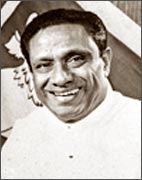
Ranasinghe Premadasa |
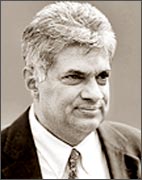
Ranil Wickremesinghe |
The British rule made a great impact on the spheres of socio economic
standards, culture, civilization, religion and education of our country.
However, with the passage of time our great leaders of yesteryear
realised the importance of national independence and started the freedom
struggle against the British Empire.
The relentless campaign that continued for a long time finally paid
dividends and we achieved independence on February 4, 1948 under the
able leadership of Right Honourable D.S. Senanayake.
In 1946 Senanayake formed the United National Party with the support
of other community leaders and it was very easy for Senanayake to
command the respect of the entire nation as he had a broad vision for
the future of the country. However, the Left movement which was
inaugurated a few years earlier was also making a considerable impact in
the political arena of the country under the leadership of Dr. N.M.
Perera who became the Opposition Leader of first Parliament of
Independent Sri Lanka (Then Ceylon).
The party policies formulated by Senanayake and his able lieutenants
managed to attract the majority support of all communities irrespective
of petty differences. Being under the British rule for a very long
period, the mentality of our countrymen then was rather different and
the influence created in the minds of the public was fully advantageous
to the United National Party which took a pro right path in governing
the country. The United National Party had appointed people of standing
calibre who commanded the respect of the people from all electorates and
most of them won their respective seats at the election.
Party fraternity
In the United National Party some of the top rung members were close
relations or inter connected in some way or other. In addition UNP
always looked into the family background, social status, education and
the financial stability of the people before they are fielded as
candidates.
The biggest allegation levelled against the UNP by the Left movement
at that time was that the UNP was a rich man’s party and there is no
room for ordinary people to represent it as it belonged only to the
elite, the English speaking society. Further they branded the UNP as
Uncles, Nephews Party or Unge Nedeyange Pakshaya. The progressive Left
movement led by the Leftists such as Dr. N.M. Perera, Philip Gunawardena,
Leslie Gunawardene, managed to indoctrinate the downtrodden masses with
marxist political philosophy and attract the attention of the people to
their movement with their powerful Sinhala oratorical skills. The Left
movement consolidated its position in certain areas in the country
represented by the party leaders.
These leaders managed to inculcate and develop a certain degree of
hatred in the minds of ordinary masses towards the affluent society
while representing their interests in the august assembly.
Meanwhile, the leadership of the United National Party had been taken
over by Sir John Kotalawala, the third leader of the party who was not a
successful political leader though a very straightforward, rigid strict
disciplinarian. During the tenure of Sir John Kotalawala the public
support to the UNP dwindled to a great extent mainly due to the manner
in which he aired his views on a number of vital issues, some of which
even involved the Maha Sangha.
SWRD leaves
In 1952, S.W.R.D. Bandaranaike, who was a senior member in the UNP
broke away from UNP over some disagreements with the leadership and
formed a new party along with some progressive forces and it started
gaining ground as a new force very rapidly. S.W.R.D. Bandaranaike, an
Oxford scholar, and veteran politician knew very well that he had to
garner the majority support by way of attracting vital sections of the
society to his new movement.
His main political theme was ‘Five great forces’ Pancha Maha
Balavegaya namely Buddhist clergy, native physicians, teachers, farmers
and workers.
The members of the above group rallied round S.W.R.D. Bandaranaike in
thousands and thousands from all over the country and extended their
fullest co-operation to the leader at the next election. The United
National Party which had done a great service to the country since
independence was swept out of power reducing its strength in the
Parliament to a mere 8 members.
That was the first ever debacle suffered by the United National Party
since its formation in 1946.
However the UNP subsequently bounced back to power on a couple of
occasions under the charismatic leadership of Dudley Senanayake with the
support of minority communities and ruled the country until 1970. Dudley
Senanayake’s government from 1965-1970 was virtually deceived by the
government officials over the unrealistic cultivation drive and rejected
by the masses comprehensively at the election.
After the death of Dudley Senanayake the undisputed deputy leader of
the party, J.R. Jayewardene became the leader.
Jayewardene, an astute politician who had gone through the mill, with
his ocean of knowledge of practical politics completely revamped the
party mechanism from grassroots levels to the top front.
That was the first ever period in the United National Party where
upcoming young blood from ordinary backgrounds were selected and
appointed as electoral organisers for a number of rural electorates in
the island.
JR resigns
J.R. Jayewardene resigned from his parliamentary seat after
completing five years as a token of protest against extending the period
of parliament by two years by the Sirimavo Bandaranaike government and
went for a by-election and returned to parliament with a thumping
majority.
From 1975 onwards he constantly agitated against the United Front
government on various issues.
An admirable quality in his leadership was that he unconditionally
supported Prime Minister Sirimavo Bandaranaike in 1971 when the
stability of the government was threatened by the JVP with its
atrocities.
J.R. Jayewardene as the Opposition leader very correctly read the
minds of the people and took all remedial measures before unleashing the
most aggressive election campaign. He had formulated the party policy
program and the election manifesto well before the election and
presented to the party membership.
The United Front Government was rejected by the people at the
election and J.R. received a mammoth five sixth majority. Various party
leaders such as Dr. N.M. Perera, Philip Gunewardane, Felix Dias
Bandaranaike, Peter Keunaman, P.B.G. Kalugalle, Colvin R. de Silva and
Dr. S.A. Wickremesinghe were unseated and subsequently driven to
political wilderness.
Epoch - maker
J.R. Jayewardene was an epoch maker in the post independent country
and no one can deny the fact that vast strides were made in all spheres,
including socio economic standards of the people. Mega development
programs initiated during his period paved the way to enhance the living
standards of all Sri Lankans.
After completing his second term as the Executive President of Sri
Lanka he retired from politics and Ranasinghe Premadasa took over the
party leadership which he has been aspiring for some time as JR’s
deputy.
Common man
Ranasinghe Premadasa though not from a elite background was a
practical politician who started his political career with his mentor A.
E. Goonesinghe, the Labour Leader. He had been right along with the
ordinary people of the city and correctly felt the pulse of the people
while accumulating a vast knowledge about everything in society. Being
the Prime Minister under Jayewardene, he initiated a number of
development programs to alleviate the grievances of the public.
Premadasa’s Housing program, Janasaviya Movement, Village Reawakening
campaign, and opening of 200 garment factories all over the country were
some of the major development work undertaken by him which finally
consolidated the party membership and his position in the party. People
at large were immensely benefited by these programs and they remained
with the party even when some of the prominent figures of his party
tried to oust him from the leadership and the Presidency.
Premadasa was not only a man who worked for the people of the country
but was also a man who accepted any challenge in the House and talked
back valiantly to defeat the opponent.
The way he handled the Impeachment Motion brought against him bore
ample testimony to his bravery and aptitude.It was a well heard
statement then that “Oxbridge combination failed to beat Kehelwatta”.
However, after the untimely demise of Premadasa on May 01, 1993 there
were immediate dramatic changes in the party leadership which was not
advantageous or beneficial to the party membership or to the people at
large.
At the next parliamentary and Presidential elections held in 1994 the
United National Party was defeated by the People’s Alliance headed by
Chandrika Bandaranaike Kumarathunga and Ranil Wickremesinghe became the
Leader of the Opposition and the party leader.
Role of opposition
When we scrutinize UNP activities while in Opposition in the past, it
is quite evident that the leader had mainly focused his attention on
consolidating and enhancing the membership while performing the
Opposition Leader’s duties and obligations in the House.
It is quite doubtful whether the present Opposition Leader worked on
the interest of party development for the last so many years.Unlike the
previous party leaders, Ranil Wickremesinghe didn’t have any innovative
and viable program or particular project which would have attracted the
young people to his fold. Neither had he any prospective plan for the
rural vote base which could have garnered the majority support.
His dictatorial stand and arrogant behaviour on some regional party
issues have led to his unpopularity among the party members which
ultimately affected the final result of elections. Ranil Wickremesinghe
never thought of rubbing shoulders with farmers and peasants in rural
corners of the country who had a great faith in the United National
Party from its inception.
Although, the United National Party managed to form a government
under Ranil’s leadership with the able assistance of a breakaway group
from PA headed by S.B. Dissanayake in 2001, he was unable to consolidate
and continue due to a number of reasons, the main reason being the
cessation of new recruitments to State sector by a gazette notification.
All the young qualified employment aspirants lost faith in the UNP.
In the meantime the Opposition launched an aggressive campaign headed
by JVP and Ranil’s government came to an end in 2004.
Since then it has been a pathetic performance by the UNP under
Wickremesinghe and the time has come for him to realize the shortcomings
and mistakes made in the past and coordinate properly with all
stakeholders of the United National Party and arrive at a suitable
decision for the larger interest of the party. |

